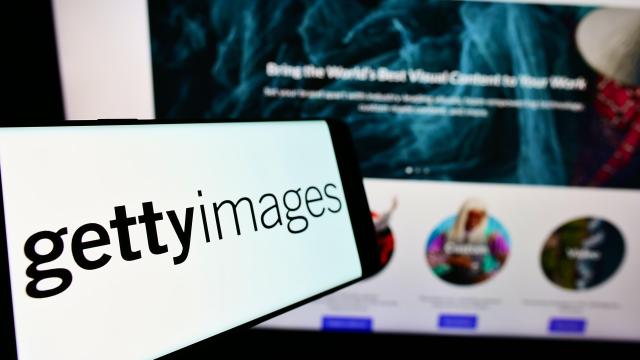Deepfakes are no longer desired, fakes are now forlorn, and any AI-originated content will be ostracised from image hosting website Getty Images.
Getty provided a communication originally sent to the site’s contributors to Gizmodo confirming that, effective immediately, the site will deny any submissions created by AI image generators. Getty specifically mentioned that any images created using popular tools like Stable Diffusion, DALL-E, and MidJourney. In addition, any prior images uploaded to the site that were created using AI will be removed.
The move is due to the open questions of copyright surrounding AI-generated images, especially “with respect to the underlying imagery and metadata used to drain these models,” according to the Getty communication. Any images edited using tools like Photoshop and Illustrator are still allowed, just as long as they were crafted by human hands.
The Verge first reported based on comments from the platform’s CEO Craig Peters who told the site there were “unaddressed rights issues” concerning AI art, which is a particular problem with hosting sites that need to maintain strict copyright control over its hosted content. The CEO further defined their role in the image hosting industry, telling The Verge “Our business has never been about the ease of creating imagery or the resulting volume. It is about connecting and cutting through.”
Though there are still lingering questions of how well these systems can actually trick, AI image generators are becoming more and more sophisticated. Earlier this week, OpenAI announced its DALL-E AI image generator would be able to modify human faces. As much as the company said it’s using detection methods to spot any kind of violent or sexual content, there will always be images that slip through. Getty has had to handle lawsuits over questionable copyright in the past, so it’s likely trying to avoid any potential blowback in today’s uncertain environment.
Gizmodo also reached out to Getty to ask if they had experienced any persons uploading AI-generated content and passing it off as human-made, but we did not immediately hear back on our query. That may be a real concern, especially considering there have been cases where people have used AI content to win local art competitions.
There’s also the question of how the platform will track AI-generated content. Though the company has yet to respond to Gizmodo’s query, Peters told The Verge they will have to rely on users identifying images while they craft automatic filters.
But in the meantime, other AI image generators like Stability AI’s Stable Diffusion has been used to create much more raunchy content, since the open source program does not contain any real filter whatsoever.
It also doesn’t take much to see just how much Stable Diffusion depends on copyrighted material. Lexica, which hosts thousands of pictures created by user prompts, is chock full of images that contain a distorted Getty Images watermark. This AI system in particular is based on datasets collected by LAION that contain billions of images scraped from the internet, according to tech blogger Andy Baio. The system has reportedly combed through dozens of image hosting sites like Pinterest, Flickr, DeviantArt, and other user-created blogs hosted by Blogspot and Tumblr. In addition, around 35,000 of its 2.3 billion image database were taken from the likes of Getty Images, VectorStock, and Shutterstock.
Getty isn’t the only platform to ban AI-generated images. Last year, venerable creator content host Newgrounds became one of the first platforms to ban images created by AI. The popular furry art community Fur Affinity told its users Sept. 5 they would be updating their policy to restrict AI art, saying it was “lacking in artistic merit” especially since popular programs sample other artists’ work to create content. This month, fledgling art hosting platform InkBlot made it clear they also have no tolerance for AI art.
